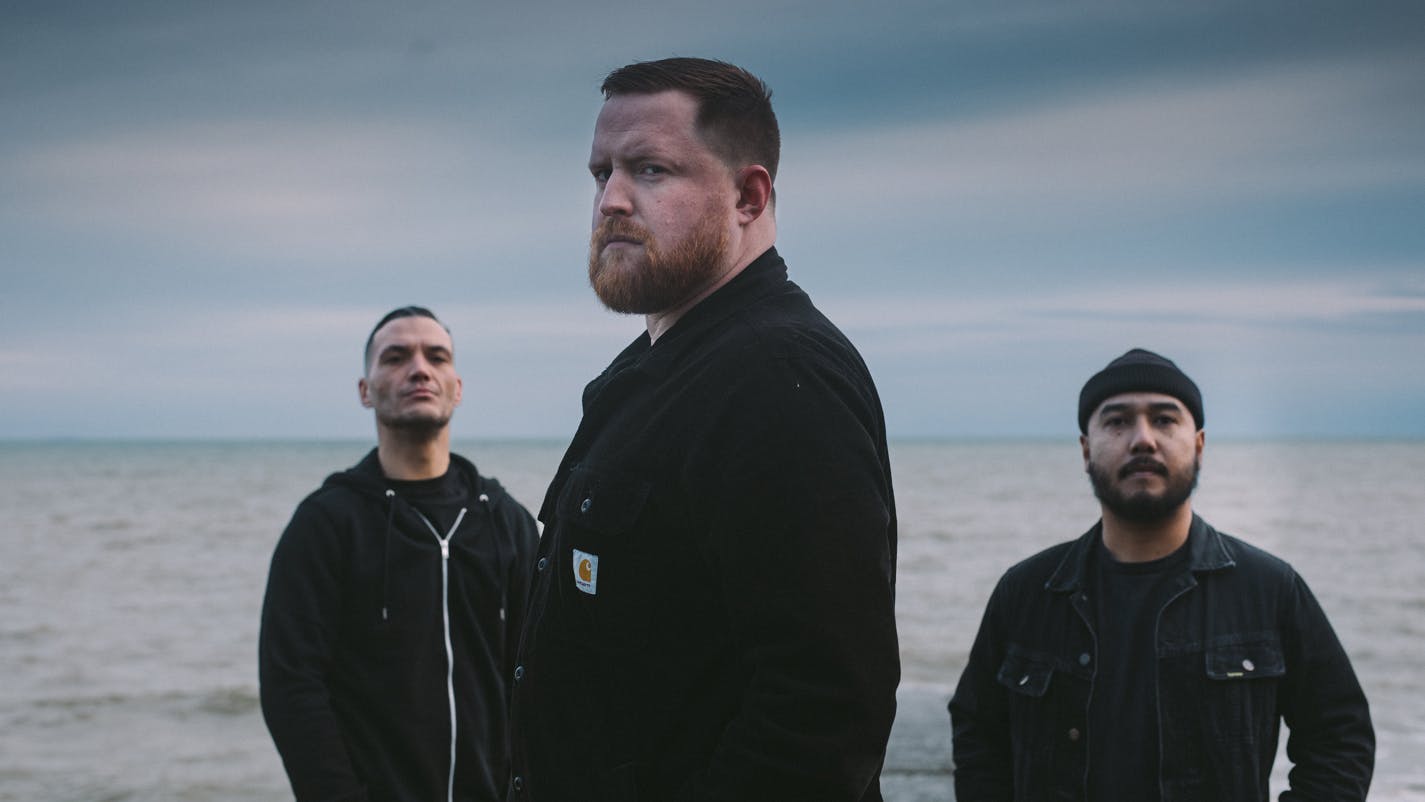From the tempestuous artwork by esteemed coastline photographer Rachael Talibart (her first album cover) to every anguished vocal and pummelling riff within, the finished article feels like a complete realisation of the pain from which it was plumbed. From the autobiographical onslaught of the aforementioned opener (‘You detailed the demise / Of your past and future mind’) to the brutalist introspection of To Die Twice (‘Which will die first? / The Heart? / The Mind? / The Soul?’), themes are fearlessly confronted, not hidden behind theatrical fantasy or flowery metaphor. Its crashing sonic palette draws from black and death metal while invoking Machine Head and Mastodon at their breathtaking best.
Towering above all else, however, are the record’s epic, 11-minute pillars: A Stumble Of Words and The Longer Goodbye/Where Do The Memories Go. The former’s inside view of a failing mind is counterbalanced by the latter’s bittersweet resignation and faint flickers of hope. Fascinatingly, both showcase a love of Celtic music, from the weeping guitar of Irish blues great Gary Moore to the mystery and melancholy of old folk favourites The Night Visiting Song and The Parting Glass, to showcase Urne at their most versatile and visionary.
At the beginning of this press cycle, Joe struggled with the deeper meaning of A Feast Of Sorrow. The song after which the album was named adopted the perspective of some demon – perhaps Death himself – who gorged on the misery wrought by the grim inevitabilities of disease, dementia and deterioration in old age. With the benefit of a few more months distance from writing and recording, and countless hours of conversation, he is ready to acknowledge that the album itself is the feast of misery: his and his family’s.
“There were a lot of fun elements to Serpent & Spirit,” he shrugs. “There aren’t many of those here. This is not a joyful record – at all. It is heavy in its sound, yes, but also the lyrical themes, the atmosphere, even my voice. The sorrow is my sorrow. It’s my sorrow at the beginning, my sorrow in the current moment, and my sorrow for what’s yet to come. Maybe there’s some alternative reality version of the record where it’s a sad emo boy putting out an album of eight really heartbreaking acoustic ballads. But this is mine.”
Now the album is out in the world, Joe is coming to terms with the fact that these songs are no longer just his. The personal story he set out to tell may still be ongoing, but the catharsis he craved has been achieved. Now it’s time to the release the art his anguish brought forth to allow others to view it in the context of theirs.
“I remember hearing Alive Or Just Breathing by Killswitch Engage when I was a kid going through some family illnesses and deaths, and how that album made me feel safe,” he concludes. “I related so strongly to it at the time. To have people who’re dealing with similar things and who’ve heard A Feast On Sorrow tell me it’s done the same for them are some of the most important words I’ve ever heard. Somebody said this is the most ‘human’ metal record they’ve heard in years. That meant a lot. It feels weird to say I hope people will ‘enjoy’ an album about grief, but it’s so important to me that they take something away.”
A Feast On Sorrow is out now via Candlelight
Read this next:
